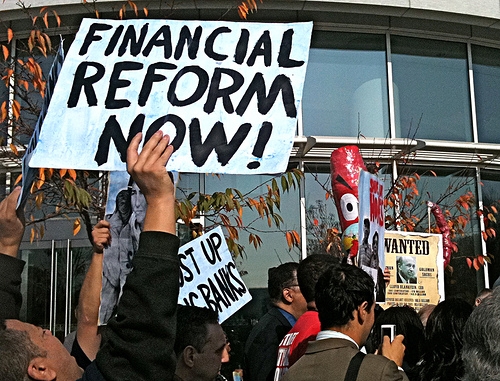The Difference in the Storm: Calming Relations between London and Washington
This time the subject was the oil spill reaching the Gulf coast states of Louisiana, Florida and Alabama, and London’s support of the company BP, which is said to have acted negligently in controlling the broken oil pipeline in the Gulf of Mexico. This led to the White House formally demanding compensation from British Petroleum Company (BP) and the British government.
The issue of the oil on America’s shores is beyond purely environmental — the consequences of this pollution involve both Washington politicians and the residents of the states bordering the Gulf of Mexico, and the responsibility for this crisis rests on the shoulders of Obama and his government. The topic of the oil spill became of utmost importance to the American president, who visited affected areas on several occasions. In his dialogues with officials of states, Obama expressed concern about the escalation of pollution, and he promised the people that the government would utilize all its power to confront and challenge BP to provide compensation for all damage, but this has yet to be realized. Analysts predicted that London’s direct support of BP and consequent anger toward the White House would be included in the discussion between Obama and Cameron; however, we witnessed instead that the U.S. president and British prime minister did not mention a single word in connection with this crisis or the extent of this disaster — rather, they pretended that international issues were more important to them.
Related challenges to BP were not limited to the oil spill. Documents obtained from BP indicated that the oil company’s need for access to oil resources in Libya led to the company putting pressure on Scotland Yard to release Abdel Baset Ali al-Megrahi, the sole accused terrorist in connection to the deadly Lockerbie explosion. The freedom of Al Megrahi at the time of his release faced a somewhat mild reaction from America, but following the clarification of this new dimension of the interference by BP for the freedom of this accused terrorist, U.S. senators demanded an official explanation from London authorities. Although both Al Megrahi and the BP issue were reflected in the negotiations between Obama and Cameron, the two sides tried to calm frictions and get past this conflict for the existing tension not to be apparent in relations between London and Washington.
On one hand it is clear to everybody that the U.S. and U.K. are the two main countries allied in the Afghanistan war. They must achieve their goals in this country. The authorities of these two countries tried to look positively at the situation in Afghanistan — a situation experts refer to as a fiasco away from the public opinion’s attention. It’s obvious that the increase of British and American military casualties in Afghanistan — those who have given the most in combat power — has caused growing dissatisfaction among the people and politicians in these two countries.
On the other hand, Obama now faces a British government in which Deputy Prime Minister Nick Clegg has begun to challenge the involvement of the U.K. in the Iraq and Afghanistan wars, and he knows that London and Washington are the main cause of the casualties.
A lack of harmony between the new British government and older U.S. policies could turn into a challenge for relations between the two countries in the long-term, and they could face problems with respect to the management of the wars in Afghanistan and Iraq as well.
This is a topic Obama and Cameron are well aware of, but they are trying to hide from it, and through psychology and projection they put aside their differences as marginal.
The flip side of this meeting was a magnification of the power in the hands of the U.S. and U.K. as they highlighted the subject of peaceful Iranian nuclear activities, drawing the public opinion’s attention away from their differences and their failures in the war in Afghanistan.
The mutual policy of the U.S. and U.K. toward Tehran’s peaceful nuclear program was completely obvious in the negotiations between Cameron and Obama. While these two continued the discussion regarding Iran, we witnessed British and American justification for new resolutions against Iran. Experts agree that the British and American reference to this topic is used as a psychological tool for projection. In any case there are definitely disagreements in the relations between the U.S. and the U.K. They are lurking, and the authorities of these countries, no matter how many times they attempted, could not repair the existing gap. In the short term they may successfully hide the differences, but in the long term they will be exposed for the world to see.

